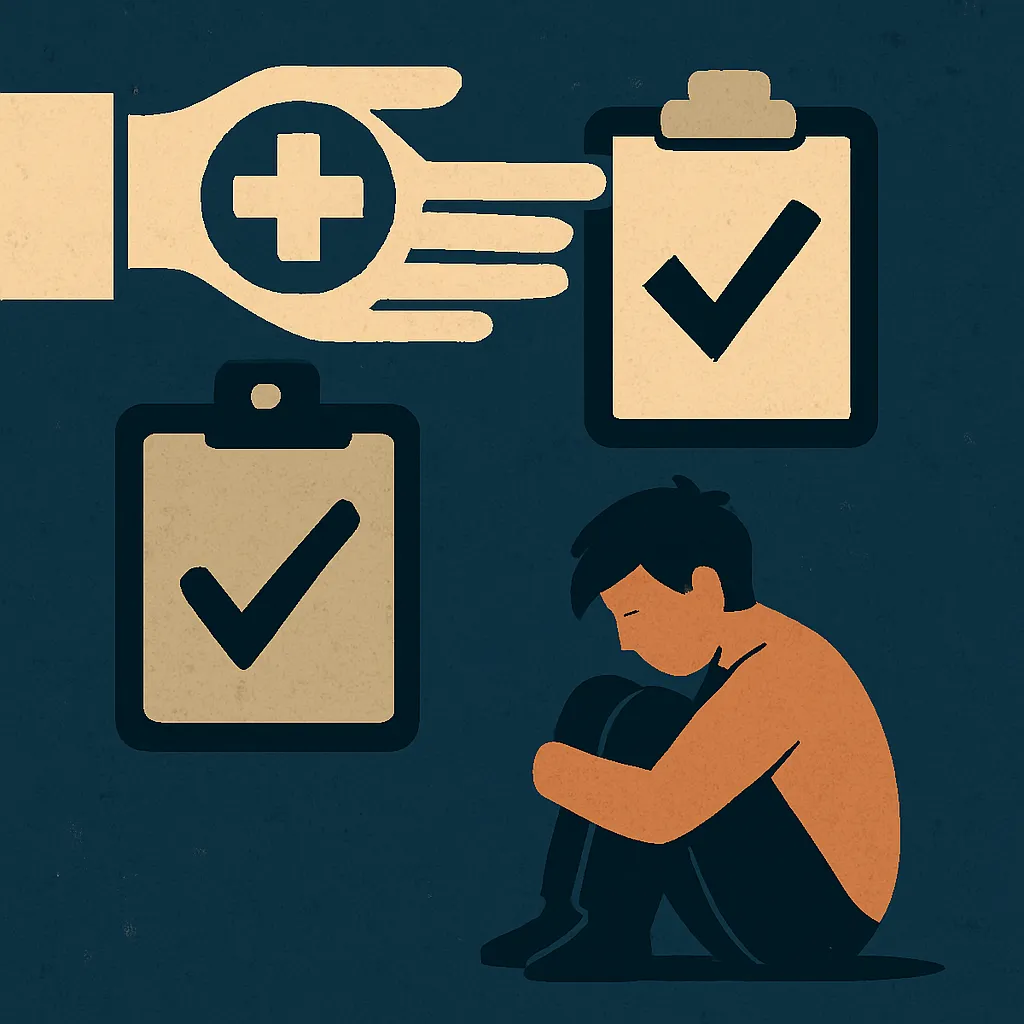You Shouldn’t Have to Prove You’re Broken to Get Help
 Last month, the UK Parliament’s Health and Social Care Committee released a letter to the Department of Health and Social Care with urgent recommendations on autism and ADHD diagnostic pathways for children and young people. On the surface, it’s about waitlists.
Last month, the UK Parliament’s Health and Social Care Committee released a letter to the Department of Health and Social Care with urgent recommendations on autism and ADHD diagnostic pathways for children and young people. On the surface, it’s about waitlists.
But read closer — and it’s about something deeper:
A system that withholds support until you’ve been certified as defective.
The MPs don’t say it in those words. But they name the results:
- Children waiting years for an autism diagnosis — just to unlock basic accommodations
- Families denied access to services because their child isn’t “official” yet
- Schools demanding diagnosis before offering adjustments
- Local systems so overstretched that access depends more on postcode than on need
They call it “devastating.” They’re right.
But devastation doesn’t start with delays. It starts with design.
Diagnosis as Gatekeeping
In the current model, support isn’t based on what a child needs. It’s based on what a system can verify. If your needs don’t fit neatly into a diagnostic code, you wait. If your distress is visible but uncategorized, you’re sidelined. And if you’re autistic — but not yet labeled — you are, administratively speaking, invisible.
That’s not care. That’s conditional legitimacy.
And it’s built into the structure. Services aren’t designed around difference. They’re designed around evidence of disorder — and diagnosis is the evidence. That process takes time. And in the meantime, children fall through.
The Committee’s letter recommends earlier intervention, before formal diagnosis. That’s progress. But the fact that this shift is seen as bold tells you everything.
Why “Waiting” Isn’t Neutral
Parliament didn’t just identify a waitlist problem. They identified a trust problem.
Right now, systems operate from a posture of procedural caution: delay access until a label confirms what’s already obvious to those living it. It’s not that professionals are hostile. It’s that the system is wired to treat uncertainty as risk — and to treat autistic presentation as suspect until proven clinical.
But the real risk isn’t that someone will get support they didn’t need.
It’s that children who do need support will never get it — because they didn’t check the right boxes, in the right order, fast enough to survive the process.
Support Is Not a Prize
Let’s say it plainly:
You shouldn’t have to prove you’re broken to get help.
- Support should be based on need, not pathology.
- Access should be based on trust, not surveillance.
- And care should begin with the presumption that people know when they are struggling — not with the fear that they might be lying.
The Committee’s recommendations gesture toward a reframe: needs-based care, not just faster diagnostics. That’s a start. But unless systems shift their default assumptions — from skepticism to solidarity — families will still be forced to navigate care as though it’s a reward for suffering, not a right.
And children will still fall apart while waiting to be believed.